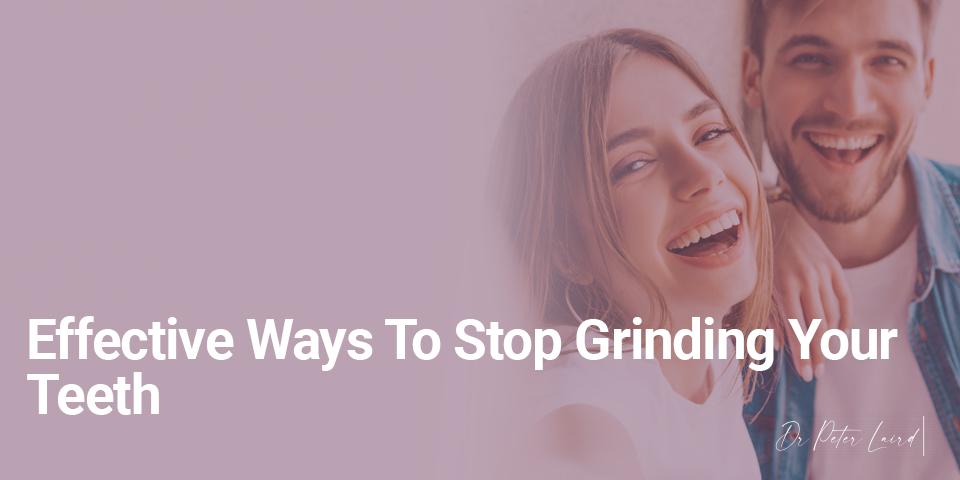Grinding your teeth could have serious consequences for your oral health. While it\’s natural to clench your teeth now and then, doing so regularly can cause damage and symptoms that last throughout the day.
Because they grind their teeth while sleeping at night, many people are unaware that they are doing so. It is done so naturally that it is usually done unconsciously.
Headaches and a sore jaw are common bruxism symptoms. People may tell you that they hear you grinding your teeth at night. If this is your case, keep reading to find out how to stop grinding your teeth at all times of the day, and even at night.
For more info, visit Glenferrie Dental Hawthorn.
How You Can Stop Grinding Your Teeth
There are a few options for putting an end to daytime and nighttime teeth grinding. Here are some things you can do right now to feel better.
1. Begin Exercising
Add a few workout sessions to your weekly routine if you don’t already do so. Stress is very common in our busy lives and can manifest as tooth grinding. Exercising will help you relax and de-stress.
2. Relax Before Sleeping
Before you go to bed, all of the tension in your jaw must be released. Try one or more of the following relaxation tips:
- Take a warm bath to relax your jaw muscles.
- Apply a warm, wet towel or a heating pad to your jaw.
- Warm-up your mouth by drinking herbal, caffeine-free tea.
3. Use a Night Guard
Grinding your teeth regularly can wear down the enamel on your teeth, making them more vulnerable to cavities. Sleeping with a mouth guard will, fortunately, protect your teeth.
Our dentist can create a custom mouth guard for you that will keep your teeth safe all night. A custom-made night guard will be more comfortable than a store-bought one-size-fits-all guard, which may not fit as snugly. One of the effective ways to combat sleep bruxism is to wear a mouth guard every night.
4. You Should Avoid Chewy Foods
On days when your teeth grinding or bruxism has flared up, say goodbye to steak, popcorn, and taffy. These foods necessitate a lot of chewing and will wear out your jaw even more.
5. Massage the Muscles of Your Jaw
Do you notice your jaw clenching up throughout the day when confronted with a stressful situation? If this is the case, just relax your face and massage your jaw muscles. The tension that has built up throughout the day will be relieved by rubbing.
6. Develop A Greater Awareness of Your Clenching
You might not even realize you’re grinding your teeth all day. This is because it is usually an unconscious action. Sometimes, it is a reflex reaction to stress.
Practice awareness several times a day to help you relax and let go of anxiety. You’ll notice that your teeth grinding becomes more noticeable in certain situations or at certain times of the day. Stop it by letting your jaw hang and drop for a few moments when you notice it happening. Move it gently at first, then try to keep your jaw relaxed.
7. Stop Chewing on Anything Other Than Food
Do you chew gum all day long? Do you enjoy chewing ice while you\’re at work? Even if chewing a pen cap is your favourite vice, stopping these repetitive motions that keep your jaw clenched will be beneficial.
Consequences of Regular Teeth Grinding
Although teeth grinding may appear to cause only minor discomfort, it can cause serious and noticeable side effects. Allowing your bruxism to continue can lead to other health problems a few months or years down the road.
Some of these problems include:
- Severe pain
- Tooth fracture
- Tooth sensitivity and discolouration
- Regular headaches
- Temporomandibular disorders (TMJ Syndrome)
When Should You Visit a Dentist About Teeth Grinding?
If you\’re experiencing pain in your mouth, neck, or jaw as a result of teeth grinding, it’s important to consult your dentist. Sleep bruxism can be harmful to your sleep and oral health, and seeing a doctor could help you avoid severe issues down the road.
If you grind your teeth while sleeping, a doctor or dentist can tell if you have Gastro-oesophageal Reflux Disease (GERD) or Obstructive Sleep Apnea (OSA), which may require additional testing or treatment.
Tips For Those Who Sleep With People Who Grind Their Teeth
The noise of teeth grinding keeps bed partners awake and prevents them from getting the rest they require. Below are few things you can do to avoid this disruption and get better sleep:
- Encourage your partner to seek treatment from a doctor or dentist.
- To block out the sounds of bruxism, use earplugs or headphones.
- To make teeth grinding less noticeable, use a fan or a white noise machine to create background sounds.
